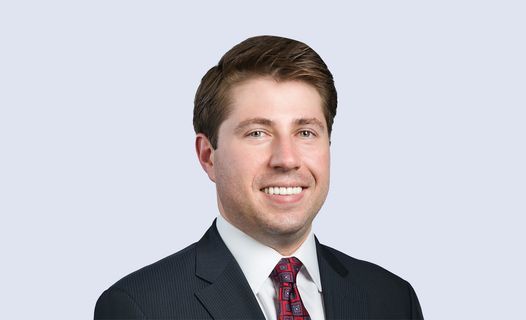New York Governor Kathy Hochul recently delivered her second State of the State address – her first as an elected governor – and managed to provide insight on a few key areas of workplace law that will affect New York employers in the year and years ahead. Her address focused on less “hot-button” labor and employment law initiatives than last year’s address, and, for the second year in a row, did not address the “gig worker” issue or propose a change to the independent contractor classification test which was so often a focus of former Governor Cuomo. Here is a review of the top four workplace related proposals Governor Hochul gave during her January 10 address.
1. Index the Minimum Wage Against Inflation
Governor Hochul proposed automatically increasing the minimum wage to keep pace with inflation. After reaching the $15 minimum wage, each region’s minimum wage would increase consistent with the year-over-year Consumer Price Index-W for the Northeast Region.
As justification for the proposal, Governor Hochul cited that the monthly cost of goods and services for households has risen by 13.4% since October 2020, and the $15 minimum wage has lost $1.78 in purchasing power since its implementation. Governor Hochul also added that to ensure no single-year increase would threaten employment, annual increases should be capped, and an “off-ramp” should be available in the event of certain economic conditions.
It is also important to note Governor Hochul says that New York will not be alone in indexing the minimum wage to inflation – as 17 other states either currently tie their minimum wage to inflation or some other economic formula or are slated to do so.
2. Reform Traveling Nurse Agency Staffing Practices
Governor Hochul also touched on introducing legislation aimed at reforming temporary staffing agencies in the healthcare industry. During the throes of the COVID-19 pandemic, healthcare providers relied on contracts with temporary staffing agencies for contract staff and traveling nurses to meet overwhelming demand. Post-pandemic reliance on agency staff at healthcare facilities has since skyrocketed. The governor noted that labor costs have increased for providers because contract labor can be significantly more expensive than directly employed staff.
Governor Hochul’s proposal would require staffing agencies to register and report key data about their operations with the goal of increasing transparency into the utilization and costs of contract labor. The State will use the collected data to explore options to remedy the dependence upon, and escalating costs related to, agency staffing.
While this may not have an immediate broad effect in the healthcare industry, this data could have long-term effects on the market for healthcare staff, in both union and non-union healthcare facilities – as well as increasing the immediate administrative burden on certain healthcare employers.
3. Modernize and Streamline the State’s Training Employment Infrastructure
Governor Hochul pointed out that there is an ongoing mismatch between the skills needed by employers and those in the incumbent workforce in New York. She cited the statistic that there are approximately 1.3 openings for every job seeker in New York, which the governor attributed to a mismatch in education requirements, lack of professional skills, and lack of training or opportunity for advancement as for some of the reasons employers are struggling to fill roles.
Governor Hochul would propose to transform the Department of Labor Career Centers into “Community Training and Career Centers” and aim to provide unemployed and underemployed New Yorkers with no-cost training in high need areas, such as digital and financial literacy and entrepreneurship. This will be paired with a new, large scale, on-the-job training program administered by the Department of Labor to upskill 3,000 workers each year, focusing on high-demand industries and hard-to-fill job titles. Governor Hochul stated that, she will articulate a new, statewide framework that will guide New York’s workforce development strategy in the coming year and will ensure that all agencies undertaking and funding workforce development projects are advancing in the same direction.
4. Follow up to 2022 Chief Disability Officer
In last year’s address, Governor Hochul created the Office of the Chief Disability Officer (CDO) in an attempt to bring New York to the forefront of employing workers with disabilities. Indeed, in the current tight labor market, the employment rate of individuals with disabilities has skyrocketed. The governor has directed the Office of the CDO, in coordination with the Department of Labor, to connect people with disabilities to inclusive internships with State agencies with the hope of long-term, stable employment.
Governor Hochul will also issue an Executive Order aimed at making New York a “model employer for people with disabilities.” The State has been tasked with identifying policies and practices that will help increase the employment rate and decrease the poverty rate of people with disabilities, in addition to working with businesses to facilitate the adoption of inclusive policies and practices that support integrated employment.
2023 and the Year Ahead
Given what was in Governor Hochul’s address and the changes already in store for 2023, New York employers must stay on their toes. Although Governor Hochul’s workplace-related proposals were more modest than some of her predecessor’s, it is clear that the governor and the legislature (not to mention local jurisdictions like New York City) will continue to push New York to be an even more employee-friendly jurisdiction.
We will keep a close eye on these various initiatives throughout the year. Make sure you are subscribed to Fisher Phillips Insight System to get the most up-to-date information directly to your inbox. If you have questions, contact your Fisher Phillips attorney, the authors of this Insight, or any attorney in our New York City office.


